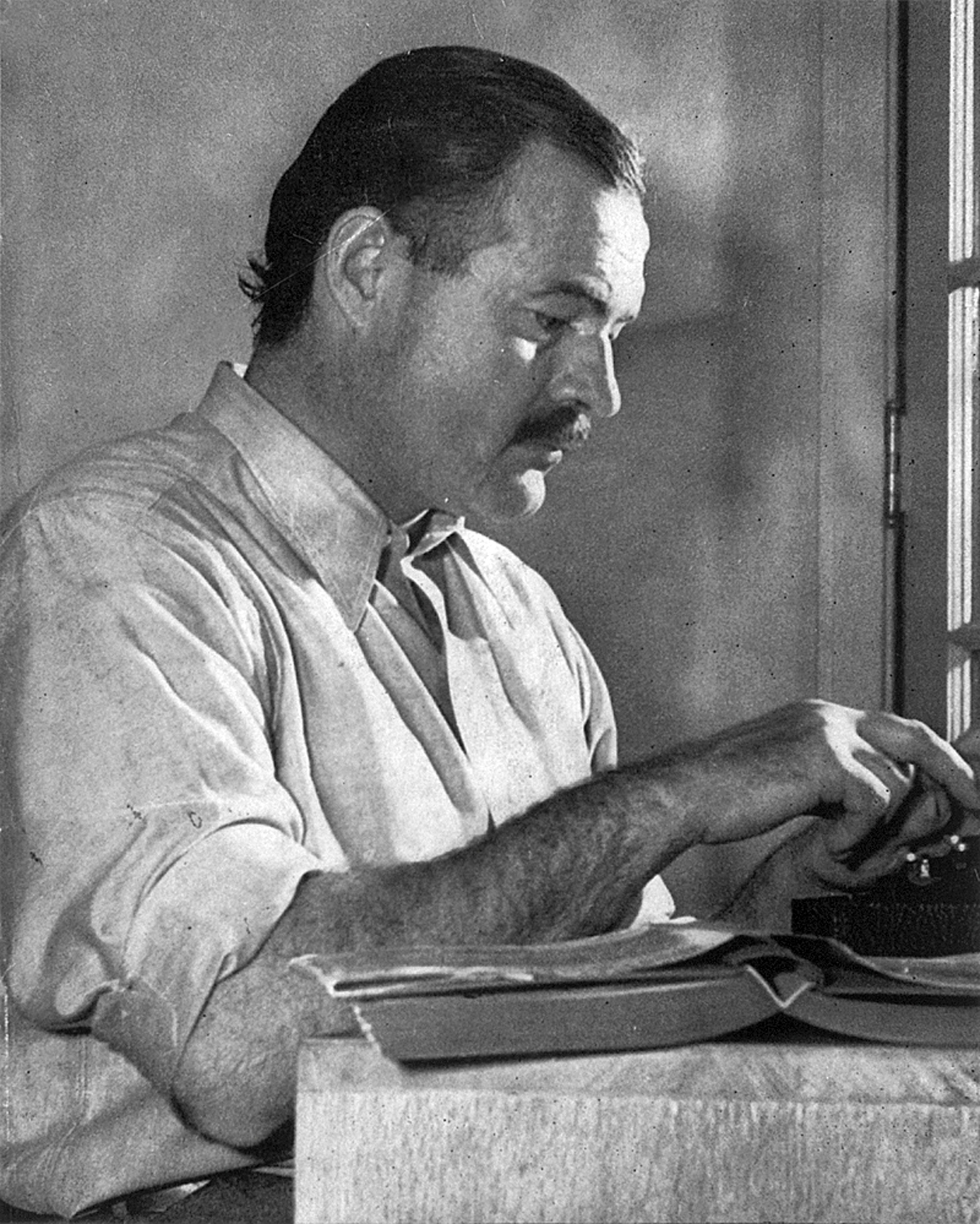Ernest Hemingway citations célèbres
Ernest Hemingway Citations
Le viel homme et la mer, 1952
“La mort est un remède souverain à toutes les infortunes.”
Mort dans l'après-midi, 1938
“Ça m'empêchera pas de le tuer, dit-il; tout superbe et formidable qu'il soit.”
Le viel homme et la mer, 1952
Le viel homme et la mer, 1952
“Dans tous les arts, le plaisir croît avec la connaissance que l'on a d'eux.”
Mort dans l'après-midi, 1938
Ernest Hemingway: Citations en anglais
Source: The Dangerous Summer (1985), Ch. 1
“However you make your living is where your talent lies.”
"The Snows of Kilimanjaro," first published in Esquire (August 1936); later published in The Fifth Column and the First Forty-Nine Stories (1938)
“A bottle of wine was good company.”
The Sun Also Rises (1926)
Introduction to Treasury of the Free World (1946)
Helen Gordon to her husband Richard Gordon in Ch. 21
To Have and Have Not (1937)
“Every day above earth is a good day.”
The Old Man and the Sea (1952)
Letter (5–6 January 1932); published in Ernest Hemingway: Selected Letters 1917–1961 (1981) edited by Carlos Baker
Source: The Dangerous Summer (1985), Ch. 1 (the opening paragraph of the book)
Source: The Dangerous Summer (1985), Ch. 1
About his book, The Sun Also Rises in a letter (21 August 1926); published in Ernest Hemingway: Selected Letters 1917–1961 (1981) edited by Carlos Baker
Pt. 2: Cuba (a few paragraphs from the end). The 'boy' is Thomas Hudson's last surviving son, Tom, a fighter pilot who was killed in action.
Islands in the Stream (1970)
“All our words from loose using have lost their edge.”
Source: Death in the Afternoon (1932), Ch. 7
Introduction to S. Kip Farrington Jr., Atlantic Game Fishing (1937)
“Keep your head clear and know how to suffer like a man. Or a fish, he thought.”
The Old Man and the Sea (1952)
Letter to F. Scott Fitzgerald (1 July 1925); published in Ernest Hemingway: Selected Letters 1917–1961 (1981) edited by Carlos Baker
Letter (3 July 1956); published in Ernest Hemingway: Selected Letters 1917–1961 (1981) edited by Carlos Baker
“You make your own luck, Gig. You know what makes a good loser? Practice.”
Speaking to his son Gregory, as quoted in Papa, a Personal Memoir (1976) Gregory H. Hemingway
"The Snows of Kilimanjaro," first published in Esquire (August 1936); later published in The Fifth Column and the First Forty-Nine Stories (1938)
It is July 1959 and Hemingway is in Marceliano's bar in Pamplona, where he has not been since before the Spanish Civil War. In the following paragraph Hemingway mentions for contrast an unpleasant American journalist in his early twenties whose 'handsome young face already showed the traced lines of bitterness around the upper lips.'
Source: The Dangerous Summer (1985), Ch. 9
Source: For Whom the Bell Tolls (1940), Ch. 16 <!-- p 208-->
“Hesitation increases in relation to risk in equal proportion to age.”
Pt. 1, Ch. 3
Papa Hemingway (1966)
Part 1, Ch. 1 (the opening lines of the novel)
The line Yogi Johnson quotes is actually from Percy Bysshe Shelley's Ode to the West Wind. This is one of several misattributed quotes in the novel.
The Torrents of Spring (1926)
Letter to Bernard Berenson (2 October 1952); published in Ernest Hemingway: Selected Letters 1917–1961 (1981) edited by Carlos Baker
Preface to The First Forty-Nine Stories (1944)
Hemingway's famous iceberg theory of writing.
Source: Death in the Afternoon (1932), Ch. 16
